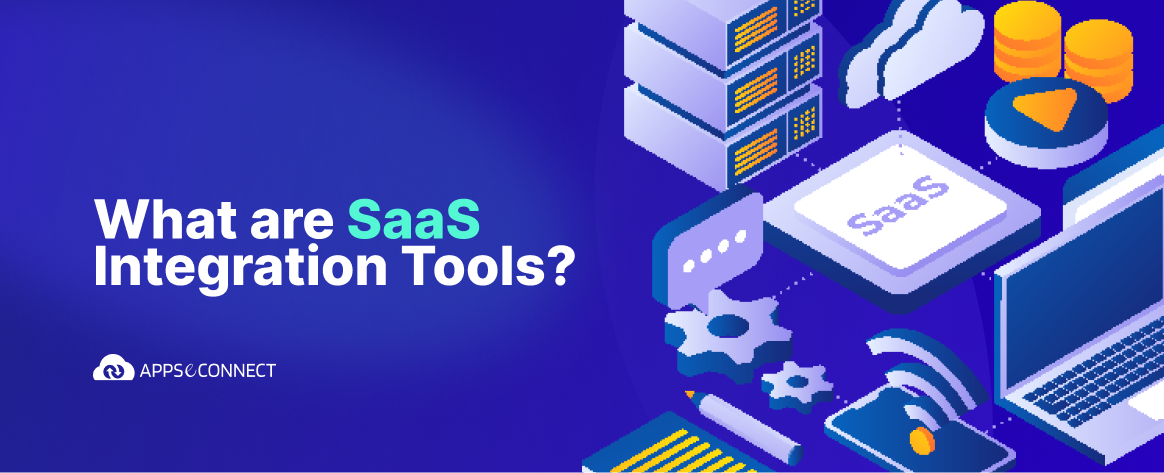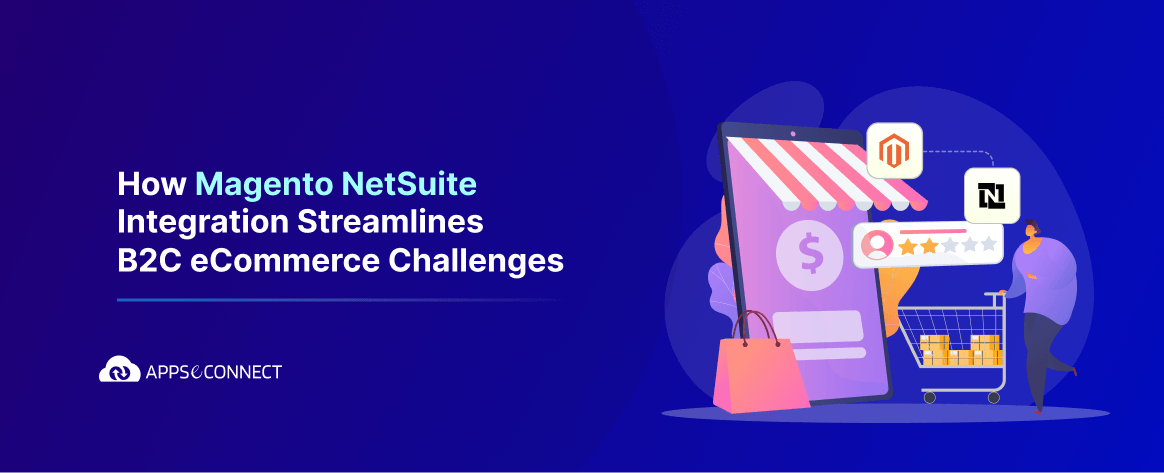In the ever-evolving landscape of modern industry, the eCommerce market has emerged as a powerhouse of global trade. Simultaneously, the recent exponential growth in the realm of Artificial Intelligence (AI) is rapidly transforming the way businesses now operate, connect with customers, and optimize their processes. From personalized shopping experiences and efficient supply chain management to advanced data analytics and chatbot-driven customer service, AI in eCommerce is propelling the industry into a new era of innovation and growth. As AI in eCommerce continues to evolve and integrate deeper into business strategies, enterprises need to understand the best use cases of AI for eCommerce to fully leverage it and accelerate their business growth.
AI in eCommerce – How the Technology is Shaping the Industry
The world of eCommerce has experienced tremendous expansion throughout the years, and experts anticipate a consistent yearly growth rate (CAGR 2023-2027) of 11.22%. This trajectory is expected to lead to a market size of approximately US$1,416 billion by the year 2027. The growth of the eCommerce sector indicates how lucrative the industry has become, but with more businesses entering the market to capitalize on this growth, the competition in the sector has also seen a massive spike.
For brands to stand out from the crowd in this saturated market, they need to implement disruptive technologies that capture the attention of potential customers and effectively convert them to sales. Smart implementation of AI in eCommerce has the potential to be a tool that can enable brands to gain a competitive edge.
The usage of AI has leaped from the realm of science fiction into the mainstream industry over the past two years. Implementation of AI across a wide spectrum of businesses operation throughout the industry is becoming the norm through the different branches of AI such as data mining, natural language processing, machine learning, generative AI and many more. These different branches of AI can be leveraged by eCommerce businesses to gain significant benefits across various operations.
The Benefits of AI in eCommerce
Tools powered by AI can offer a wide range of benefits to eCommerce businesses of all sizes and types. The benefits of AI in eCommerce can offer include the following:
Personalized Customer Experience
Modern customers seek products and services that are curated to address their specific needs. Thus, companies need to focus on personalization and customization to deliver a more effective customer experience. Customized communication such as through personalized messages and one-on-one conversations can help the business to stand out for the customers.
AI chatbots and voice assistants have become advanced to the point where they can enable deep personalized communications through customized content. The technology can understand customer queries and can replicate the human-like communication of a sales associate. The technology can also offer 24/7 customer support throughout the year across all time zones and languages. Moreover, customers, being accustomed to AI assistants like Alexa, Siri, and Google Assistant, are already comfortable shopping online through AI in eCommerce as well.
Remarketing to Potential Customers
Remarketing for eCommerce involves engaging audiences who have already interacted with the webstore to encourage them to return and take a desired action that may interest them, such as making a purchase or subscribing to a service. Remarketing is an important strategy for online marketing as most potential customers will take time to consider a brand or product, by browsing elsewhere online or by reading customer reviews before finalizing their purchase.
With AI in eCommerce, businesses can more effectively identify and track customer purchasing behavior based on most purchased products, customer ratings or most viewed items. The data from these sources can be used later to develop targeted content and strategies to attract customers back to the eCommerce store. Push notifications are the most powerful retargeting strategy here. These notifications are brief and straightforward, so there’s little risk of customers getting annoyed. An eCommerce business can also use personalized push notifications that provide one-on-one communication.
Optimized Time and Resources
In this hyper-competitive market of eCommerce, brands need to properly optimize their time and resources to stay competitive within the market. AI in eCommerce can play a crucial role in optimizing time and resources by automating and enhancing various processes throughout the entire eCommerce lifecycle.
Through AI-powered recommendation systems, it can analyze customers’ browsing and purchasing behaviors to offer personalized product suggestions, enhance user experience, and increase sales. Automated chatbots powered by AI can handle customer inquiries and support requests, reducing the need for human resources and freeing up customer service teams to focus on more complex issues. Additionally, AI-driven demand forecasting can analyze historical sales data, market trends, and external factors to provide accurate predictions, enabling retailers to better optimize inventory levels and avoid stockouts or overstock situations.
Business Workflow Automation with AI in eCommerce
Online eCommerce stores must be available 24/7 across multiple channels simultaneously to provide a comprehensive customer experience. Implementation of AI in eCommerce can help streamline and automate eCommerce businesses by managing and executing repetitive tasks quickly and cost-effectively, simplifying the front-end and back-end workflow.
AI for eCommerce can significantly enhance efficiency by automating repetitive workflows. Through advanced algorithms, AI can analyze vast amounts of customer data, enabling personalized product recommendations and tailored marketing strategies. It can automate inventory management by predicting demand patterns, optimizing stock levels, and even suggesting reorder timings. Customer queries can be addressed promptly using AI-powered chatbots, enhancing customer service. Additionally, AI can streamline pricing strategies by analyzing market trends, competitor pricing, and customer behavior to set optimal prices.
Top 11 Use Cases of AI in eCommerce
With AI being a suite of technologies that can offer a wide range of functionalities for eCommerce businesses, there are several beneficial use cases for AI in eCommerce such as:
AI-Driven Product Recommendation
AI offers companies the ability to effortlessly process vast amounts of customer data about their online shopping experiences. Brands can then leverage those data for targeted product recommendations to increase conversions, boost revenue, and stimulate shopper engagement. Adobe Commerce is already leveraging Adobe Sensei, which uses artificial intelligence and machine-learning algorithms to perform a deep analysis of the data from customers visiting the eCommerce webstore. The data can then be combined with the product catalogs on webstore to deliver a more engaging, relevant, and personalized shopping experience for the customers.
Optimized Product Pricing
Utilizing dynamic pricing empowers companies to optimize their comprehensive pricing approach. In the case of a brand that positions itself to sell below its direct competitors, AI algorithms can be harnessed to dynamically fine-tune its pricing for a competitive edge. This AI-driven dynamic pricing mechanism can seamlessly incorporate competitor pricing data, supply and demand dynamics, automatically adapting prices to optimize profits. With full access to market data, AI tools can further anticipate the ideal timing and magnitude of discounts, dynamically computing the minimal discount essential to incentivize customers into completing a purchase.
Enhanced Customer Engagement
Customers often require human interaction when purchasing online, such as for support, information, or for registering grievances. However, it is not possible to offer human customer support that can operate around the clock for multiple time zones. Thus, AI chatbots play a pivotal role in enhancing customer engagement by providing quick and personalized interactions. These intelligent systems use natural language processing and machine learning to understand and respond to customer inquiries in real-time. By offering instant support 24/7, chatbots ensure customers receive timely assistance, resolving common queries and issues efficiently.
Fraud Purchases Detection
AI can play a pivotal role in enhancing fraud detection in eCommerce businesses by leveraging advanced algorithms to analyze vast amounts of transaction data and identify suspicious patterns or anomalies in real-time. Through machine learning techniques, AI models learn from historical fraud instances and continuously adapt to new tactics employed by fraudsters. These models can detect unusual purchasing behaviors, irregular payment patterns, and other indicators of fraudulent activities that might go unnoticed through traditional rule-based systems. By swiftly identifying potential fraud, AI not only minimizes financial losses but also boosts customer trust by creating a safer and more secure online shopping environment.
Improved Social Media Listening
AI can enhance social listening for eCommerce businesses by extracting valuable customer data from social media platforms. Through advanced Natural Language Processing algorithms, AI can sift through vast amounts of social media content, including posts, comments, and reviews, to gain deep insights into customer sentiments, preferences, and trends. By analyzing language patterns, emotions, and mentions of specific products or brands, AI can identify emerging trends and enable businesses to better gauge customer reactions to marketing campaigns or new product launches.
Virtual Product Visualization
One of the biggest challenges with online commerce is for customers to fully visualize the product they are purchasing, especially for bigger items like furniture and large electronic appliances. Here AI-driven virtual product visualization can revolutionize the eCommerce experience by enabling customers to interact with products in a highly immersive and realistic manner. Through technologies like Augmented Reality (AR) and Virtual Reality (VR), AI-powered systems create dynamic and interactive virtual environments where customers can visualize products in real-world settings before making a purchase. These systems leverage computer vision to accurately map products onto the customer’s physical environment or provide virtual spaces for exploration. By superimposing products into the real world or offering virtual showrooms, customers can assess how items fit into their lives, gauge size, color, and texture, and make more informed purchase decisions. This not only boosts customer engagement and satisfaction but also reduces the likelihood of returns, enhancing the overall shopping experience and driving increased sales for eCommerce platforms.
Customer Sentiment Analysis
AI-driven sentiment analysis empowers eCommerce businesses to gain invaluable insights into customer opinions and emotions by automatically analyzing vast volumes of textual data, such as customer reviews, social media comments, and feedback. AI algorithms can classify and analyze customer data to determine whether the sentiments expressed are positive, negative, or neutral. This process can help businesses understand customer preferences, identify pain points, and pinpoint areas for improvement in products and services. By aggregating sentiment data over time, businesses can track trends and adjust strategies, accordingly, enhancing customer satisfaction, making informed decisions, and tailoring their offerings to better match customer expectations.
Visual Product Search
Visual search is another AI-powered technology that can streamline the eCommerce experience by allowing users to search for products using images instead of text. AI analyzes the visual attributes of images uploaded by customers or found online and then matches them to relevant products in the eCommerce catalog. This empowers customers to effortlessly find products that align with their preferences and style, even when they might struggle to describe them in words. Visual Search enhances user engagement, reduces search friction, and significantly improves the overall shopping journey. As customers can now simply take a photo of an item they like and discover similar or complementary products, eCommerce businesses can capitalize on increased conversions, higher customer satisfaction, and greater user loyalty.
Optimized Inventory Management
AI-powered inventory forecasting optimizes supply chains by leveraging historical data, market trends, and external factors to accurately forecast demand and automate inventory replenishment. Machine learning algorithms analyze past sales patterns and incorporate variables like seasonality, promotions, and economic indicators to generate accurate demand forecasts. This enables businesses to maintain optimal stock levels, reducing the risk of stockouts and overstocking. Additionally, AI can predict lead times, transportation delays, and other supply chain disruptions, allowing for proactive adjustments. By ensuring the right products are available at the right time, AI-driven inventory management minimizes carrying costs, increases operational efficiency, and enhances customer satisfaction through improved product availability and timely deliveries.
Product Content Generation
Integrating AI with ERP and eCommerce platforms such as OpenAI integration with SAP and Shopify can revolutionize the creation of product content by automating and enhancing the process. AI-powered natural language generation can produce compelling and consistent product descriptions, specifications, and marketing content at scale. By analyzing product attributes, customer reviews, and industry trends, AI algorithms can craft engaging and relevant content that resonates with target audiences. This not only saves considerable time and resources for businesses but also ensures content uniformity and quality. Moreover, AI can adapt the language and tone to match the brand’s style, optimizing content for SEO and improving product discoverability. Through this integration, eCommerce platforms can efficiently generate product content, enhance the shopping experience, and drive higher engagement and conversions.
Smarter Business Automation
Finally, AI can facilitate seamless business automation for eCommerce enterprises by leveraging machine learning and data-driven insights to streamline various operational tasks. AI algorithms can automate inventory management by predicting demand patterns, optimizing stock levels, and preventing stock-outs. Additionally, AI-powered chatbots provide instant customer support, handling routine inquiries and guiding customers through purchases, thereby enhancing customer service efficiency. AI can automate personalized marketing campaigns by analyzing customer behavior and tailoring recommendations and offers. In logistics, AI optimizes routes for faster and cost-effective deliveries. Furthermore, AI-driven data analysis aids in strategic decision-making by providing insights into sales trends, customer preferences, and market dynamics. By automating these processes, AI boosts efficiency, reduces human error, and frees up resources, enabling eCommerce businesses to focus on innovation and growth while delivering superior customer experience.
AI in eCommerce – Enabling Automation Through APPSeCONNECT
In the rapidly evolving landscape of eCommerce, automation offers significant benefits, streamlining processes, and enhancing customer experiences. At the forefront of this revolution is APPSeCONNECT, a next-generation, low-code integration platform that seamlessly connects diverse line-of-business applications, propelling businesses into the future of automation and efficiency.
APPSeCONNECT is a robust Business Process Automation platform designed to seamlessly integrate various business applications, eliminating data silos into interconnected ecosystems. By enabling real-time data synchronization and process automation, APPSeCONNECT empowers businesses to streamline operations, enhance customer experiences, and drive growth. The platform’s vast library of integration packages allows companies to integrate their different business applications, allowing for a unified, seamless, and scalable enterprise.
With the growing importance of AI in the field of eCommerce and other sectors of the industry, APPSeCONNECT has incorporated AI into its integration capabilities. Leveraging the capabilities of AI from OpenAI, APPSeCONNECT enhances its integration capabilities to automate processes effortlessly across ERP systems, eCommerce platforms and other business applications.
Integration of OpenAI through APPSeCONNECT helps streamline and automate various critical processes. Product description generation becomes seamless as AI-driven algorithms analyze product attributes and customer preferences to create compelling and accurate descriptions. Similarly, product image generation can be automated as AI can generate high-quality visuals based on product specifications. The integration also extends to automated multilingual translation, allowing businesses to effortlessly localize their offerings for diverse markets. By harnessing the potential of OpenAI, APPSeCONNECT empowers eCommerce businesses to enhance efficiency, reduce manual efforts, and deliver a tailored experience to customers worldwide, equipping businesses to operate competitively in the new AI-driven age.
The Future of AI in eCommerce
The growing influence of AI in the eCommerce landscape has brought about a paradigm shift in shaping how businesses connect with customers and optimize their operations. From personalized recommendations that enhance the shopping experience to fraud detection algorithms that safeguard transactions, the impact of AI is undeniable. Voice search, sentiment analysis, and virtual product visualization are redefining engagement, while dynamic pricing and supply chain optimization drive efficiency and growth.
As the industry enters this dynamic era where AI is being propagated across all aspects for businesses and customers, the technology’s potential continues to expand, promising innovations in the future. Embracing these use cases not only positions businesses at the forefront of technological advancement but also nurtures customer trust and loyalty. Currently, AI is in its infancy, and as the technology continues to evolve, the future of eCommerce stands bright with endless possibilities.





















